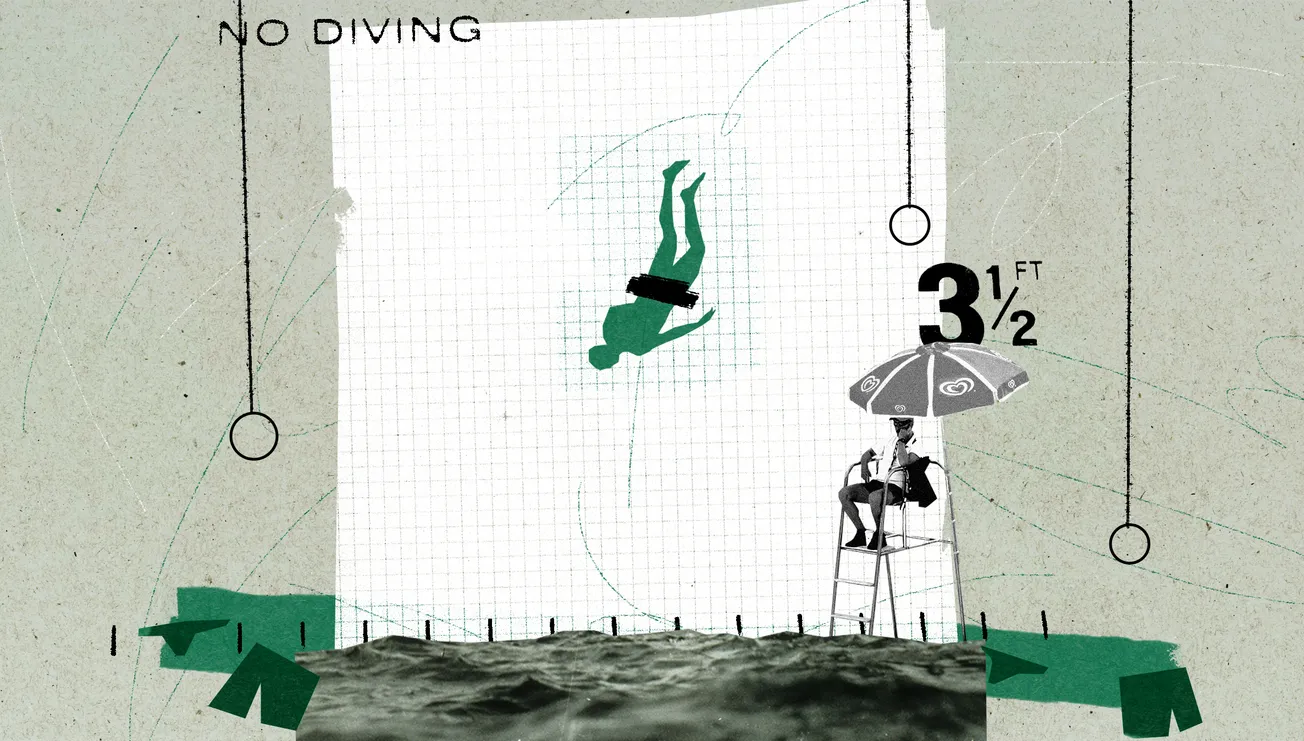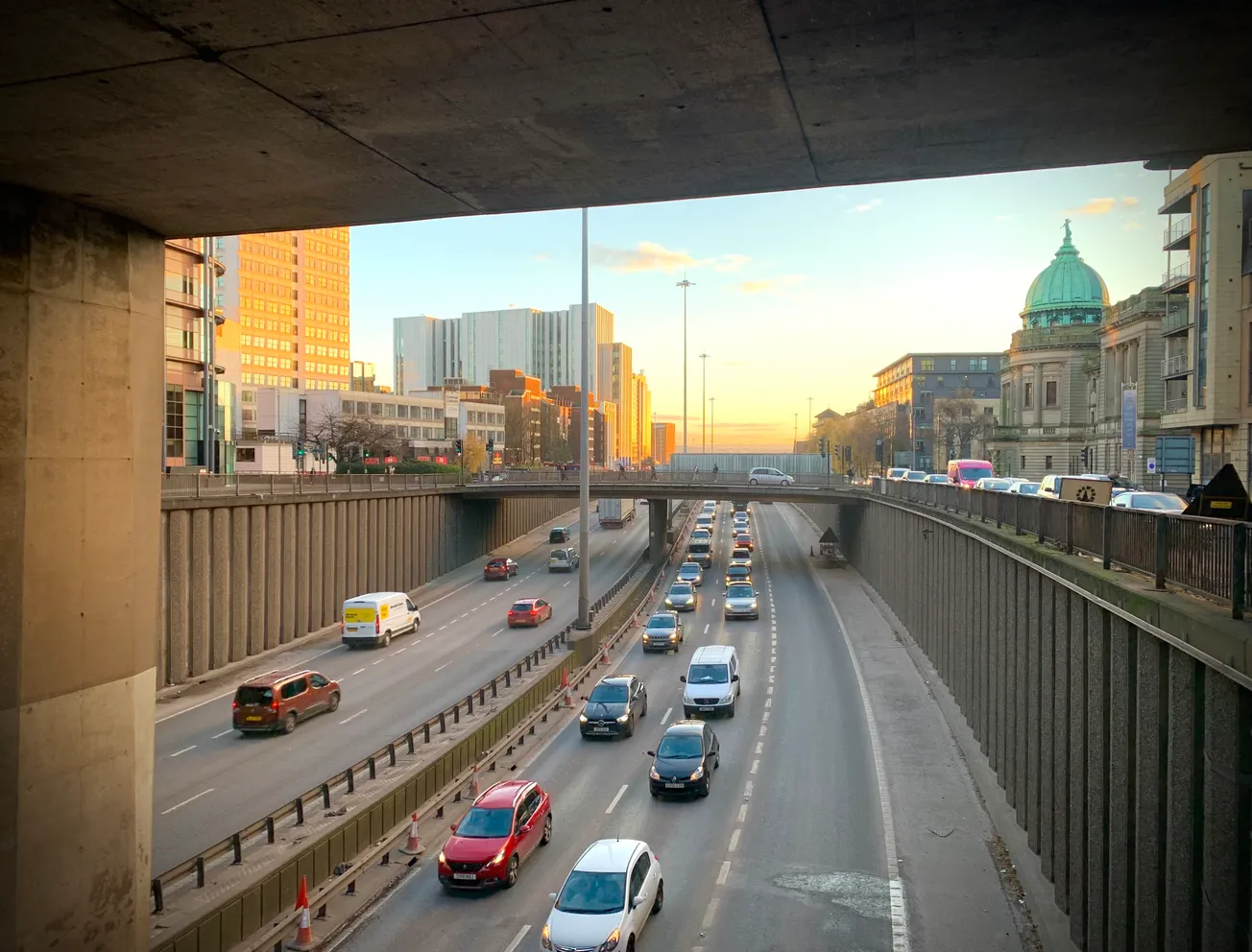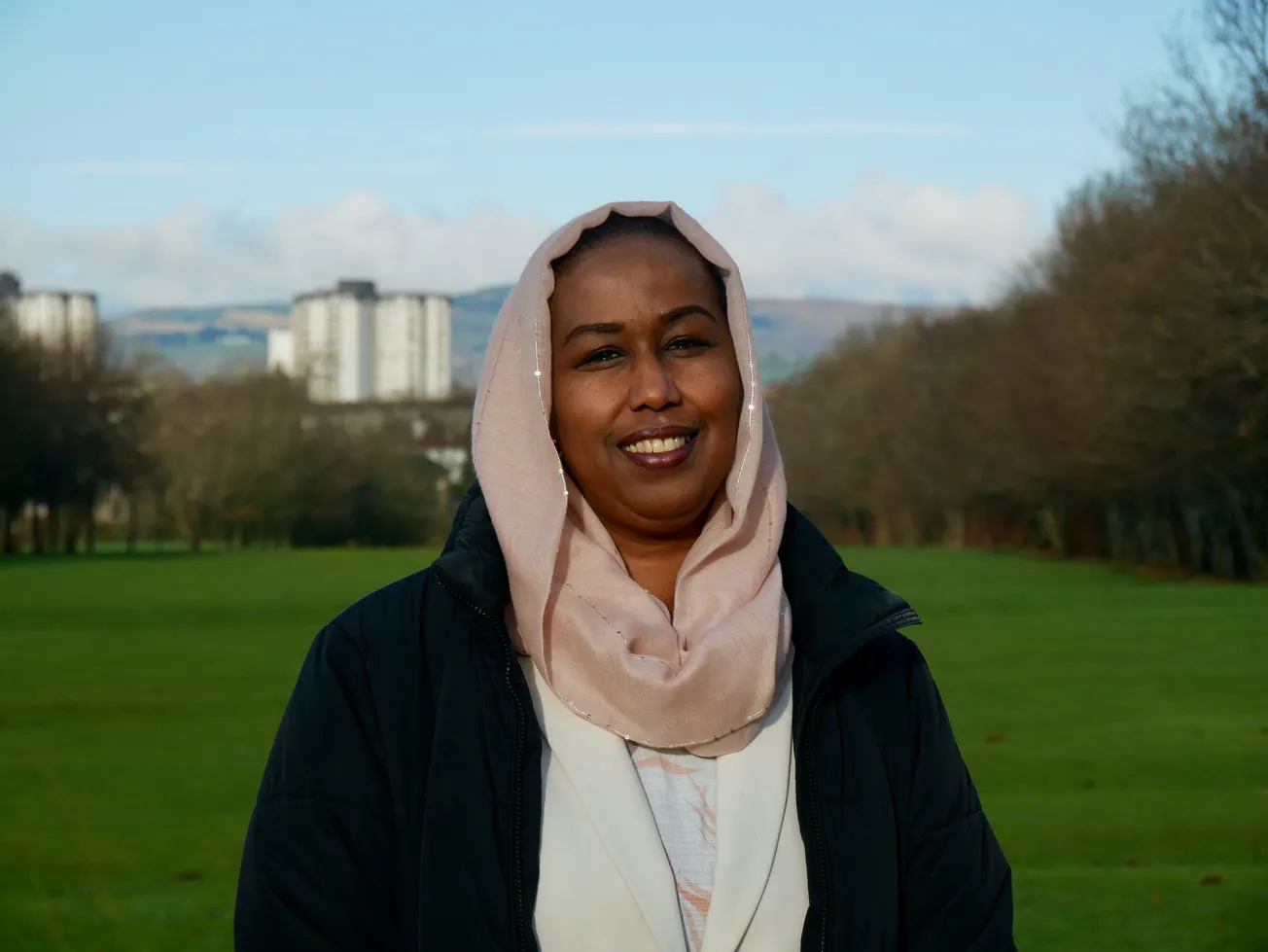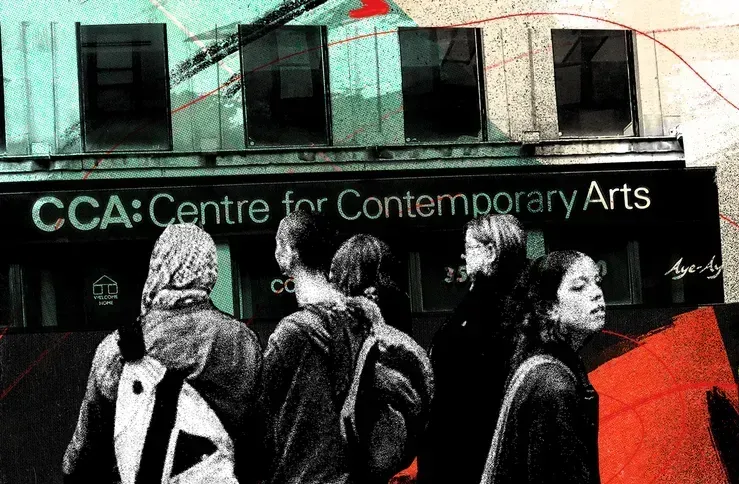At the end of a quiet residential street in the Charing Cross neighbourhood sits an iconic Glasgow landmark: the Arlington Baths. When it opened in 1871, it was the city’s first baths club, and over the decades, many volunteers have helped document its history. Today, the A-listed building is registered as a non-profit Community Amateur Sports Club, with 1,400 members who make use of its sky-lit pool equipped with Victorian features like a trapeze and flying rings, Turkish suite and sauna.
In the Arlington’s earliest days, attendees swam in knickerbockers (in other words, basically fully clothed), but for nearly a decade now, people have queued up at the baths on Sundays for what has been one of its most popular events, the naked swim. In 2015, a group of Scottish naturists persuaded the Arlington to let them host a naked swimming event there, and around 50 to 70 people attend each week. One attendee, seated in the lobby before the swim began one Sunday evening in October, told me how the event has boosted her body confidence. “Obviously everybody else is naked, and all different ages, shapes and sizes,” she says. Another, a teacher, says he loves bringing new friends to try it out — and indeed, one was sitting beside him, looking excited and far too nervous to talk to me.
I initially set out to do a simple profile of the Arlington’s naked swim. But as I began researching, a more complicated story emerged, of an event caught up in a wider cultural shift, involving ‘paedophile hunters’ and allegations of endangering children, with a founder iced out as a result.
How did this event, viewed by many as a showcase of Glasgow’s progressive culture and openness to different communities, become the centre of controversy? And what does the story reveal about the tension between trust and suspicion in modern society?
Under the surface
On a drizzly October afternoon, I meet Mark (a pseudonym), one of the original founders of the swim in the Glad Cafe in Shawlands. Mark, a retired staff member of Glasgow City Council’s social work department, has participated in and organised naturist events for years, having enjoyed the sense of freedom he’d found on nudist beaches in Europe. “In our society, there’s almost an unbreakable link between nudity and sexuality, and there doesn’t need to be,” he says. He believes people should be able to experience naturism in a non-sexual environment with family and friends.
Mark’s beliefs perhaps put him in a minority in the UK — but non-sexual nudity is common in many other countries. Clothes are prohibited in Japan’s hot springs and frowned upon in saunas in Nordic countries, while the writer Marcel Krueger has said it’s completely normal for kids to run around public pools in the nude in Germany, and that stripping off with “zero self-consciousness” is “the sign of true German-ness”. (Krueger tells me that Germans have always been that way, and that naturism had a big revival after the fall of the Nazis, who had prohibited it.)
The idea for a regular swim event in Glasgow came from the local naturist group Scottish Outdoor Club (SOC). SOC volunteers, including Mark, took on the task of coordinating the event, initially finding a home for it at the West End’s Western Baths in 2012, before moving to the Arlington in 2015. It quickly became a strong source of revenue for the baths, contributing to a 40% rise in visitor income in 2017. The Arlington provided access to the facilities and lifeguards, while Mark and the naturist community handled the rest: organising marketing, inductions, ID checks and ensuring under-16s were accompanied by guardians, and arranging refreshments.
“It was successful,” Mark says. “It was a little community we built. I knew everyone by face, and virtually everyone by name.”
The protests begin
After the swim had run smoothly for four years, in February 2019, negative posts started to appear online. The event’s Facebook page was inundated with comments and eventually had to be taken down. The comments said it was “wrong” and “disgusting” for children and adults to be naked in the same space, saying things like “can you imagine the height of a five year old and an adult when naked it’s totally inappropriate”. Before long, an estimated 20 to 30 protesters were turning up outside the venue each week, demanding that the Arlington ban children from the event.
“We started getting protests outside from people claiming to be paedophile hunters,” says Mark. “They were saying there are paedophiles there and children are being filmed. Just nonsense.” Police kept the protesters on the other side of the road. No sexual crimes were reported, but a child protection referral was made, leading to Mark meeting with the police. He calls this a waste of time — nothing came from it. But tensions kept rising. “The baths’ members felt it was intimidating, and people didn’t want to bring their children anymore,” says Mark.
After about three weeks, the Arlington’s management decided — without consulting Mark or others in the SOC, he claims — to restrict it to people aged 16 and over. Mark and other volunteers met to discuss the age-limit change and agreed they were willing to keep running the event for 16+, but soon after, the Arlington raised the limit to 18 and over. This troubled Mark. “If you see it’s advertised as an 18+ event, what message does that send out?” Mark says most of the other volunteers shared his concerns. While they’d put in hours for a family-friendly event, they weren’t willing to do the same for an adult-only one. They proposed running it once per month as a compromise, an offer the Arlington rejected.
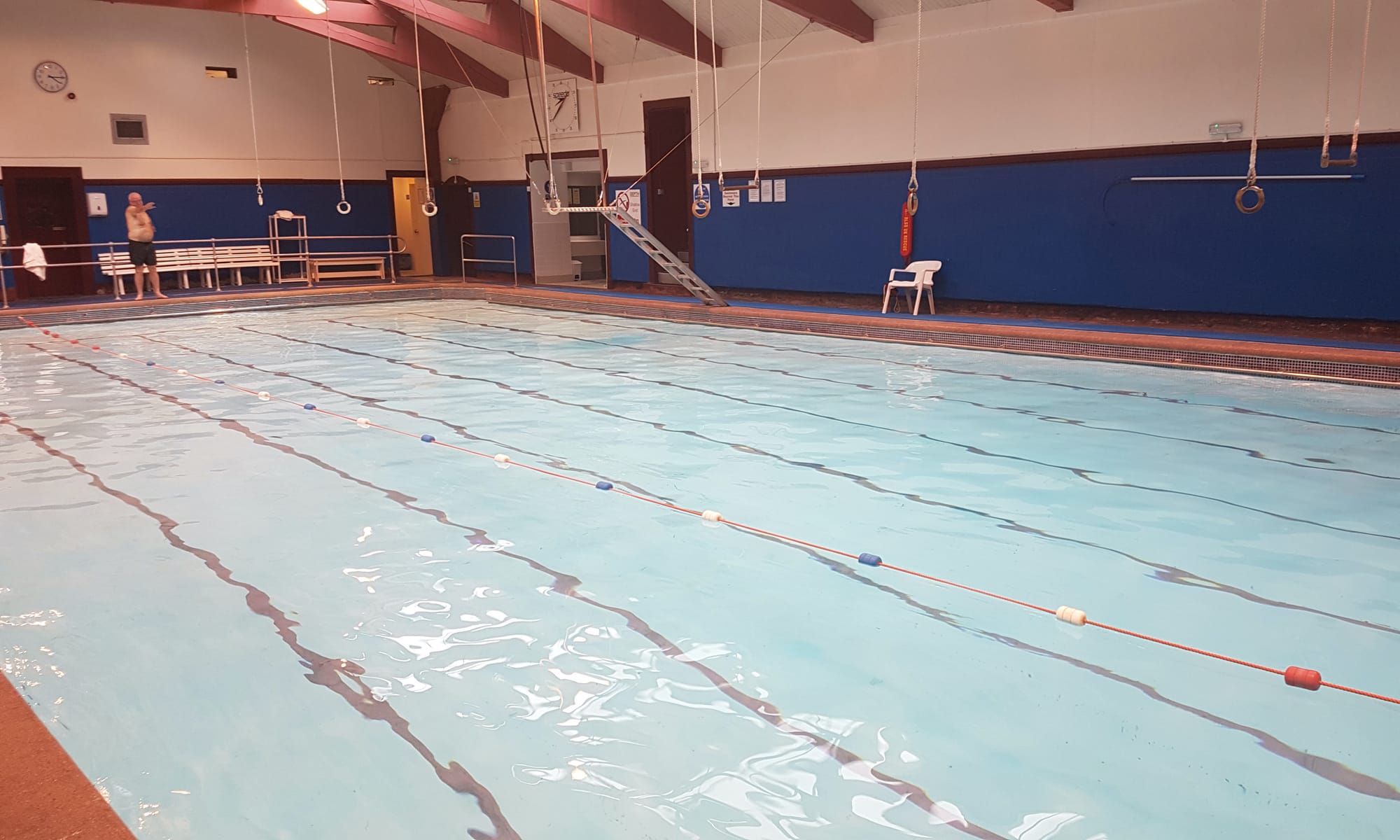
Mark was surprised when an Arlington Baths member then informed him as “a courtesy” that he and other members would take over running the naked swim. The Arlington had taken full control from the SOC. Soon after, one of the new Arlington volunteers made an online post saying the swim would go ahead that week without the involvement of the naturist group that founded it. It added that the Arlington saw making the event 18+ as the “only practical way of maintaining a naturist swim in Glasgow” and had rejected the naturists’ offer of a monthly swim for financial and logistical reasons.
Some commenters were angry, accusing the Arlington of failing to support the naturist community and sympathising with Mark after all his efforts. Others were just glad the swim would continue. “The Arlington was in a difficult position — I can see why they did what they did,” he reflects. But it’s clear that the way he became estranged from the event weighed on him. The protests ended, and — surprisingly — the press didn’t get hold of the story and turn it into a larger culture war issue. “It’s been five years, so I feel like I can speak about it now,” Mark says. “We kept it quiet at the time, but it did happen.”
The Arlington would rather the incident remain in the past. When I approached the baths for comment, the manager, James Findlay, replied: “After careful consideration, we believe there is no merit in revisiting these past events and will not make any further comments on the matter.”
The swim’s critics
The protests were part of a wave of anti-naturism that swept across the UK in spring 2019, during which — in the words of British Naturism, the largest naturist organisation in the UK — “our freedoms were threatened, with pressure groups attempting to restrict or close Naturist events.” At the Waterworld swimming pool, in Stoke-On-Trent, a family naturist swim faced similar protests from paedophile hunters and far-right group Britain First, and the event was also made 18+ only after protesters allegedly abused staff. One attendee claimed she received a death threat. But before giving into the protesters’ demands, Waterworld’s manager, Mo Chaudry, defended the naturist community — despite not being a naturist himself — accusing the protesters of scaremongering. Chaudry said no laws were being broken, asking, “Why should I bow to pressure to stop a particular group of people from hiring our facilities, simply because they choose to pursue a different sort of lifestyle to my own?”
Mark describes the people who demonstrated outside the Arlington as “fascists”, likening them to the protesters he sees outside hotels housing migrants. Some online posts suggested paedophile hunter groups like No More Silent Voices UK or Wolf Pack Hunters were involved, but neither group responded to requests for comment. These vigilante groups often pose as children to lure online predators then hand evidence to the police. HM Inspectorate of Constabulary in Scotland says the work of these groups has contributed to almost half of Scotland’s online grooming cases, but their tactics, including public doxing and intimidating confrontations, have drawn criticism.
While I haven’t been able to identify anyone who protested at the Arlington in person, but I did speak with Emma Hadaway from Crewe, who in 2019 launched a UK-wide petition calling for naturist events involving children to be banned. It gained nearly 5,000 signatures. “I did not start my campaign from a prejudiced point of view, it was a genuine concern for the safety of children,” Hadaway says. “I have no issues regarding naturism at its core, it’s just ensuring safety is in place.” In 2019, Hadaway wrote in an online post that she’d organised a protest at the Arlington, though when we spoke, she claimed she wasn’t the organiser but had collaborated with Scottish organisers to promote it, including one member of a paedophile hunter group. (Hadaway said she couldn’t recall their names.)
Following her petition, Hadaway says she was invited to meet the vice chair of British Naturism, and says they couldn’t answer her question about how CCTV footage of family-friendly naturist events was stored. She points to how, in 2014, Brian Taylor, a former director of British Naturism who helped run a similar swim in Tamworth, was convicted for possessing over 120,000 child abuse images. “Did he have access to images due to his position? Had he possibly shared those images with others?” she asks.
Hadaway also believes everyone attending family-friendly naturist events, not just the staff, should be DBS checked. I ask why this should be needed, when it isn’t at regular swimming baths. She says it’s because people could be “gaining pleasure purely from seeing children naked”. Mark says the naked swim already had higher standards than regular swims, with ID checks implemented, and no crimes were ever reported to the police as having occurred there prior to the 18+ rule being implemented.
Normally, safeguarding measures should be heightened when the risk is heightened. But is there any evidence naturists present a higher risk to children?
Scaremongering
The most comprehensive study into whether naturism poses a threat to children was published in 2023 by Dr Keon West, a professor of psychology who has authored many papers, mostly centred on themes of discrimination including racism and homophobia. (This particular study was partially funded by British Naturism.) “If there’s any evidence that naturism has negative effects on children, then I want to see that — but so far, there isn’t any,” says Dr West.
Existing research, he claims, suggests naturism has either no effects on children or mild benefits like improvement in body image. He believes that if protesters who associate naturism with child abuse are genuinely aiming to protect children, they should be able to present evidence showing the risk to children is higher at naturist events — and so far, no such evidence has been found.
Our Freedom of Information Request to Police Scotland similarly found that no reports of sexual crimes were made about the Arlington’s family-friendly naturist swim. In 2024, however, there were five reports of sexual crimes recorded, one occurring on a Sunday, the day of the naked swim, although there is no evidence to show whether it happened during the event or earlier in the day.
The only other sexual crime reported at the Arlington since 2010 occurred in 2022, when a member of the baths performed a sex act on himself in front of others (this incident was unrelated to the naked swim, occurring on a Tuesday while the swim is held on Sundays). According to The Herald, the offender was allowed to attend swims for a month after the incident was reported to management. The Arlington responded to these FOI findings by saying that it has robust procedures for dealing with complaints and always reports criminal activity to the police. It said safeguarding members was its “absolute priority”.
Glasgow’s progressive culture?
Speaking about what happened at the Arlington, for the first time in five years, seems to have provided a sort of closure to Mark. Since the family-friendly event he’d established ended so abruptly and without publicity, he feels its loss was never properly mourned. “That’s possibly why I agreed to talk to you about it”, he tells me.
But the story is about more than the loss of a family-friendly naturist event — it’s about the role fear plays in shaping our society.
When I first heard about the naked swim’s existence, it seemed like a showcase of Glasgow’s progressive culture: an event that celebrated diversity. And it still does in some ways. But after piecing together the story of how the family-friendly swim dissolved, I can understand why some people wouldn’t see it that way anymore.
When the Arlington was founded, the concept of safeguarding as we know it today was virtually unheard of. In today’s society, it’s everywhere — and we hope we’ll end up with a safer society in the process. But how do we decipher the real safeguarding risks from the imagined ones, the impactful preventative measures from the performative ones? At the Arlington, a lawful and valued community event ended up being reshaped in response to hypothetical risks, and naturists like Mark who brought the popular event to the venue are the ones who lost out.
Reflecting on a bigger societal issue which he thinks contributed to the downfall of the family-friendly event, Mark says: “People don’t seem to have much critical analysis of the information they come across.” What other communities in Glasgow are being framed as and treated like a threat, without evidence? How is fear-mongering contorting our communities already, and what could society end up looking like in future as a result?
These questions are relevant to much more than one event, one venue, and even one city.

